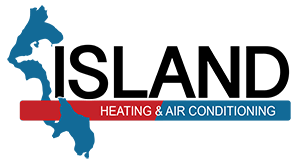There are blogs and billboards all over the place to remind you that you need professional HVAC maintenance. But does all maintenance look the same regardless of what kind of system you have in your home? Discover how maintaining a traditional HVAC system differs from a heat pump and whether one requires more than another. Two-unit Traditional HVAC System Before we begin talking about the maintenance required on traditional HVAC systems, it’s important to know what we mean. The traditional HVAC system consists of two functions: heating and cooling. The heating is typically provided by a furnace or boiler. The furnace can be an electric coil or, more commonly, it burns fuel such as natural gas, propane, or heating oil. It then transfers the heat from the exhaust of the burning fuel to the air moving over through the heat exchanger. The second unit is the cooling unit, also known as the air conditioner. This uses a refrigerant to absorb heat from the air circulating through the system and transfers it to the air outside. Both of these units will require maintenance to keep them operating efficiently. Regardless of the system you have, the goal is to maintain its efficiency...
View Article
With the usually mild temperatures around Oak Harbor, it’s worth exploring whether your home is best served by a heat pump or a central air system. Discover the differences between the two systems, and how to determine which is the best option for your situation. How Do Heat Pumps and Air Conditioners Work? Let’s begin by looking at how air conditioners and heat pumps work. Both use a system that uses a refrigerant to transfer heat. In the case of an air conditioner, it absorbs the heat from the air circuiting inside your home and transfers it to the air outside. It does this by regulating the pressure of the refrigerant, making it cold enough to absorb heat by dropping the refrigerant’s pressure. It then compresses it, increasing the temperature, to make it hot so that it can transfer that heat outside. A heat pump operates on the very same principle as the air conditioner. The difference is that the heat pump has a reversing valve, allowing it to operate as a heating system in addition to cooling. When the reversing valve activates, it increases the pressure inside your home rather than lowering the pressure. Different Types of Heat Pumps...
View Article
With temperatures in the State of Washington rising into the 90s in the summer and falling below freezing in the winter, you need a reliable heating system to keep your loved ones comfortable during seasonal temperature swings. Unfortunately, these temperature fluctuations take their toll on your system. During the summer, heat exchangers have to work overtime and transfer thermal energy through the evaporator coils. In the hot season, they circulate the refrigerant through the same coils to lower the temperature. Whenever the key units break down or start to wear out, they’ll hurt the entire system. Here are the signs your home heating and cooling unit requires an upgrade. 1. The System Takes Time to Respond to Settings An efficient heating system should respond immediately to the default settings. If the system doesn’t respond as quickly as it should, it’s an indication that something may be wrong with the heating system, the ducts or the thermostat. One way to test this is to turn the temperature way up on a hot day or way down on a cold day. If the ducts continue to heat a hot room or cool a cold room, even when you make the necessary adjustments,...
View Article

